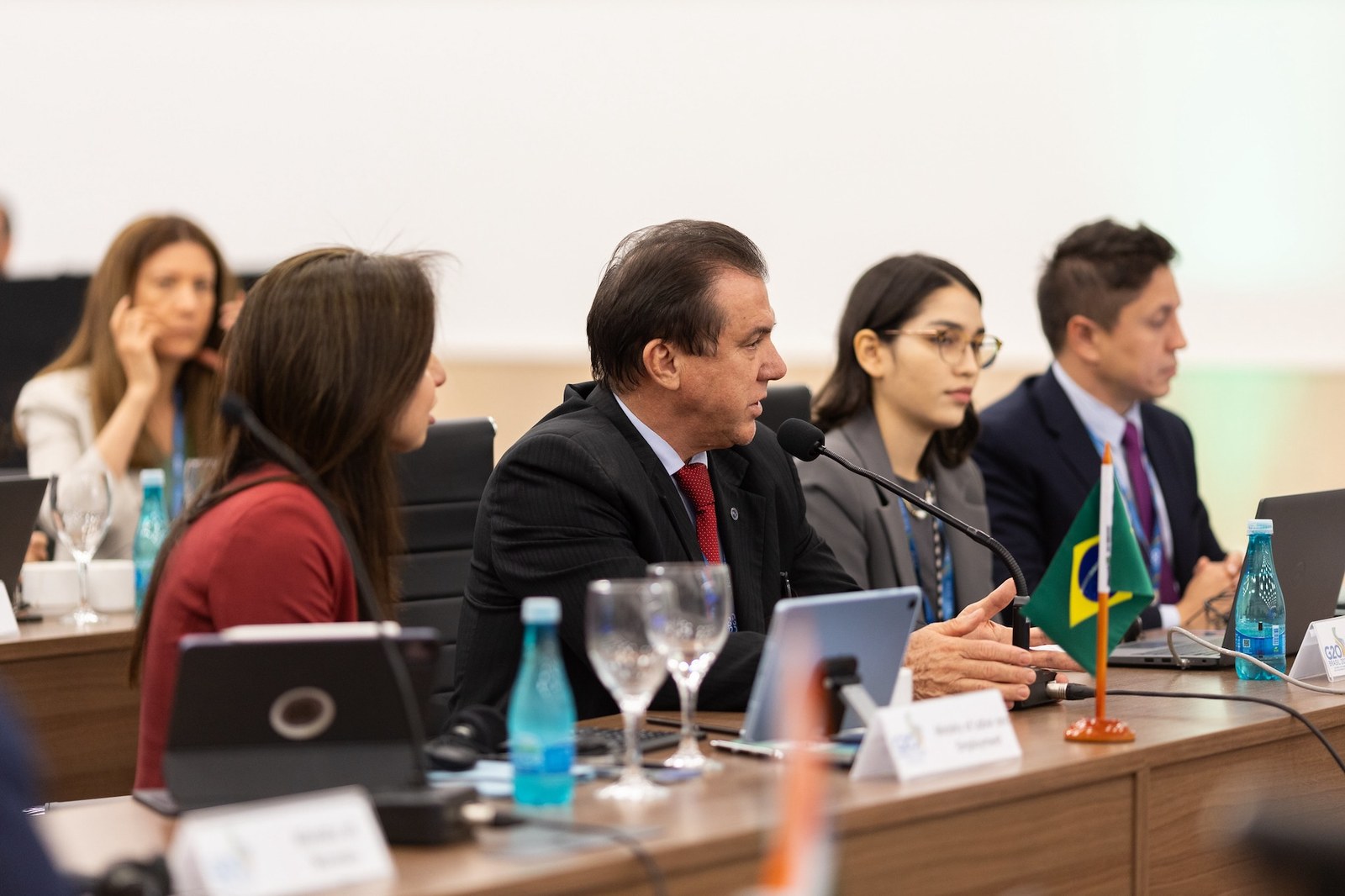“Workers are a fundamental pillar of society,” says Brasil’s Minister of Labor and Employment
Minister Luiz Marinho emphasized the importance of the topic when opening both the final technical meeting of the Employment Working Group and the Labor 20 Summit. He highlighted that the discussion directly impacts decent living conditions for the population. The minister also underscored the numerous challenges currently facing the world of work

The final technical meeting of the Employment Working Group (WG) and the Labor 20 Summit (L20)—an engagement group representing trade unions from G20 countries—began on Tuesday (23), in Fortaleza. Luiz Marinho, Brasil's Minister of Labor and Employment, attended both opening sessions. He emphasized the crucial role of workers in the development and progress of societies, as well as the responsibility of countries in the discussions taking place this week in Ceará's capital.
"Let us work together to create the best possible declaration for the G20 Summit in November, which will be held in Rio de Janeiro—which I believe will be a beautiful meeting. As representatives of the world's largest economies, we have a responsibility to be a guiding light for the global community. As members of both G20 countries and guest countries, we share a crucial role in the democratic process of reforming multilateral institutions, and we must consider workers as subjects of rights," said Luiz Marinho at the start of the WG technical meeting.
"It was the workers who truly built our countries, from our most basic infrastructures and critical services to the education of our young people and the care of our elderly—even our most advanced technologies," said the minister at the opening session of the L20. "It is increasingly necessary to guarantee human dignity and meet workers' basic needs, while also expanding their personal and professional capabilities," he added.
The Minister also emphasized the various challenges confronting the workforce today, including post-COVID-19 recovery, the need to adapt to the impacts of climate change, and the transformation of certain routines due to the advancement of artificial intelligence.
Discussing decent working conditions in Ceará is symbolic because it was the first Brazilian province to abolish slavery. Afro-Brazilian cultural elements were showcased to delegates during receptions on Monday (22) and Tuesday (23), featuring the dance-like martial art of capoeira and the traditional rhythm of maracatu. The technical meeting and the summit will conclude on Wednesday (24), leading to the final phase, which is a meeting of the Labor Ministers of G20 countries. They will finalize a declaration to be presented to the heads of State and Government.
At the Brazilian level, the 137th General Assembly of the National Forum of Labor Secretaries (Fonset) also took place today in the capital of Ceará. The space, which aims at dialogue between the state and the federal government, marks the collegiate's 35th anniversary. The forum aimed to build a presentation to the G20.
At the national level in Brazil, the 137th General Assembly of the National Forum of Labor Secretaries (Fonset) also took place today in Ceará's capital. The event celebrated the forum's 35th anniversary and served as a platform for dialogue between state and federal governments. The assembly aims to prepare a presentation for the G20.